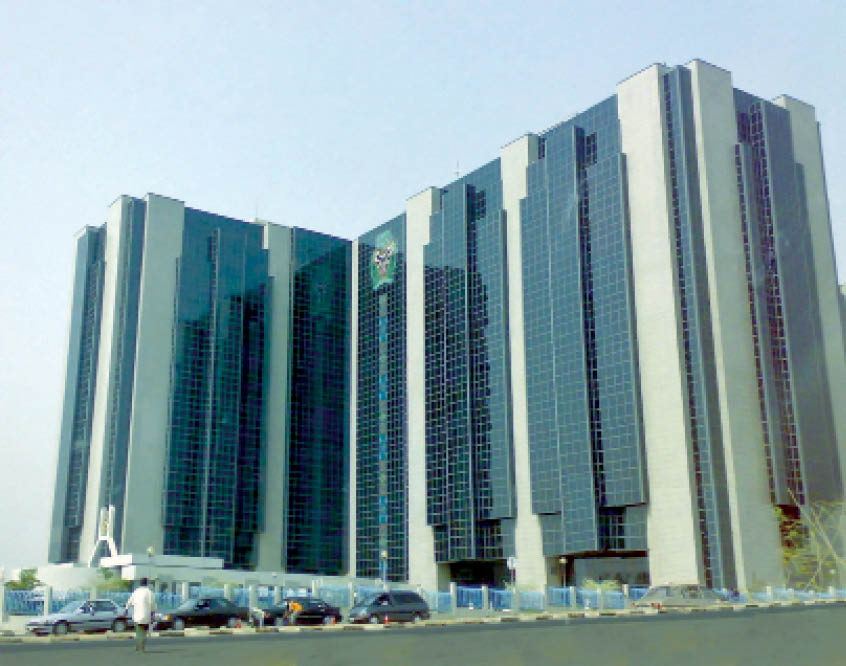The Central Bank of Nigeria (CBN) has debunked claims that it is holding on to N89 trillion stamp duty collection.
The CBN Governor, Godwin Emefiele, at post monetary policy press briefing yesterday said that the total revenue collected as stamp duty between 2016 and 2022 is N370.686 billion.
He said the money was not N89 trillion as claimed by Muhammed Kazaure, a member of the House of Representatives, in a petition to the president in 2022.
Emefiele said the clarification became necessary following an allegation that a humongous sum of N89 trillion collected as stamp duty had been stolen.
- Security guard stoned to death while separating fight in Ondo
- 12-year-old killed, organs removed in Zaria
He explained that “Total assets of all banks is N71 trillion; total deposit in banks is N44 trillion. From 2016 till date, stamp duty collection has amounted to N370,686 billion. The Federal Inland Revenue Service has disbursed N226.451 billion of the money to the Federation Account Allocation Committee, while the balance of N144,235 is in the CBN.
“The highest collection of the stamp is N71 billion, collected by First Bank,” Emefiele said. He added that the CBN had appointed four world-class audit firms to go into the books of banks to verify if there was any un-remitted stamp duty. “If there is any uncollected stamp duty, the banks will pay to the last kobo,” he assured.
MPC increases MPR to 17.5% in January 2023 from 16.5%
The monetary policy committee of the CBN also voted in its January 2023 meeting to raise its benchmark interest rate, otherwise called the monetary policy rate, to 17.5% from 16.5%.
This is the first interest rate hike in 2023 and it suggests that the apex bank is continuing with the hawkish rate policy started in 2022.
Recall that the CBN had raised interest rates by a cumulative 500 basis points last year in a bid to tame the rising inflation rate in the country.
Hike despite moderating inflation
The decision to further tighten the monetary policy rate (MPR) was made despite the moderation of the headline inflation rate in December 2022 to 21.34% from 21.47% recorded in the previous month.
According to the CBN governor, a marginal decline in the inflation numbers printed in December is not enough to begin to celebrate, which influenced the decision in favour of raising as opposed to a hold or loosening decision.
Highlights of the Committee’s decision
The MPR was increased by 100 basis points to 17.5%. The asymmetric corridor of +100/-700 basis points around the MPR was retained. Cash Reserve Ratio was retained at 32.5% and Liquidity Ratio was also kept at 30%
Note that the latest increase in the MPR represents the highest rate in over 21 years, since 2001 when the benchmark interest rate averaged 20.5%. Also, this represents the fifth consecutive increment in the monetary policy rate.
Emefiele said the CBN’s aggressive hawkish stance shows its determination to stem high inflation by reducing access to credit and mopping up excess liquidity.
The latest raise helps to tighten the negative real returns in the fixed-income market, which had deterred foreign investments. With the benchmark interest rate at 17.5% and an inflation rate of 21.34%, it brings the real returns to a deficit of 3.84%.
Hike in prices will compound small businesses woes – Expert
A finance expert while reacting to the development said the hike in the interest rates to 17.5 per cent by the CBN will further compound the suffering of small businesses
“In view of the pause in inflationary pressure, declining GDP growth, on-going implementation of cash withdrawal limit which will ultimately reduce money supply, and the fact that supply-side factors are major inflation drivers in Nigeria, I had expected the MPC to maintain status quo.
“Following this development, it is expected that the banks will reprise their loans which may further jeopardize their risk assets and worsen asset quality,” he said.
Uwaleke further noted that it is obvious the CBN is heeding the advice of the IMF at the just concluded World Economic Forum where the Global financial body urged Central Banks not to pause their aggressive monetary stance.
He however cautioned that “While doing so helps Central Banks to pursue their primary mandate of price stability, it leaves global economies vulnerable to economic recession.
For Nigeria, it goes without saying that a high-interest rate environment is inimical to economic growth, job creation and the stock market,” he added.
Also speaking on the development, the Founder, Centre for the Promotion of Private Enterprise, Dr Muda Yusuf said the hike in MPR will hurt investors in the real economy.
He said: “The implication is that lending rates will increase for investors that are indebted to the banks. This would further imply an increase in operating and production costs. The hike would ultimately impact adversely on economic growth. Challenges of Access and cost of credit by small businesses would be further elevated.”

 Join Daily Trust WhatsApp Community For Quick Access To News and Happenings Around You.
Join Daily Trust WhatsApp Community For Quick Access To News and Happenings Around You.

